Are you planning to add some flashy swordtail fish to your community aquarium? These beautiful freshwater fish are famous for their vivacious nature and come in so many colors and fin shapes that would make you wonder. However, before you take them home, it is good to look into some important points.
Content Table
Today, we are going to address your every curiosity about swordtail fish, which are quite attention-seeking, starting from their behavioral trait to the beautiful tank setup. Ideal for a varied group of fish as well. We will advise on any potential problems and will guarantee that your swordtails adapt easily to their new environment. Whether you have much experience in aquariums or not, this guide will provide you with a full overview of everything related to these amazing swordtail fish!
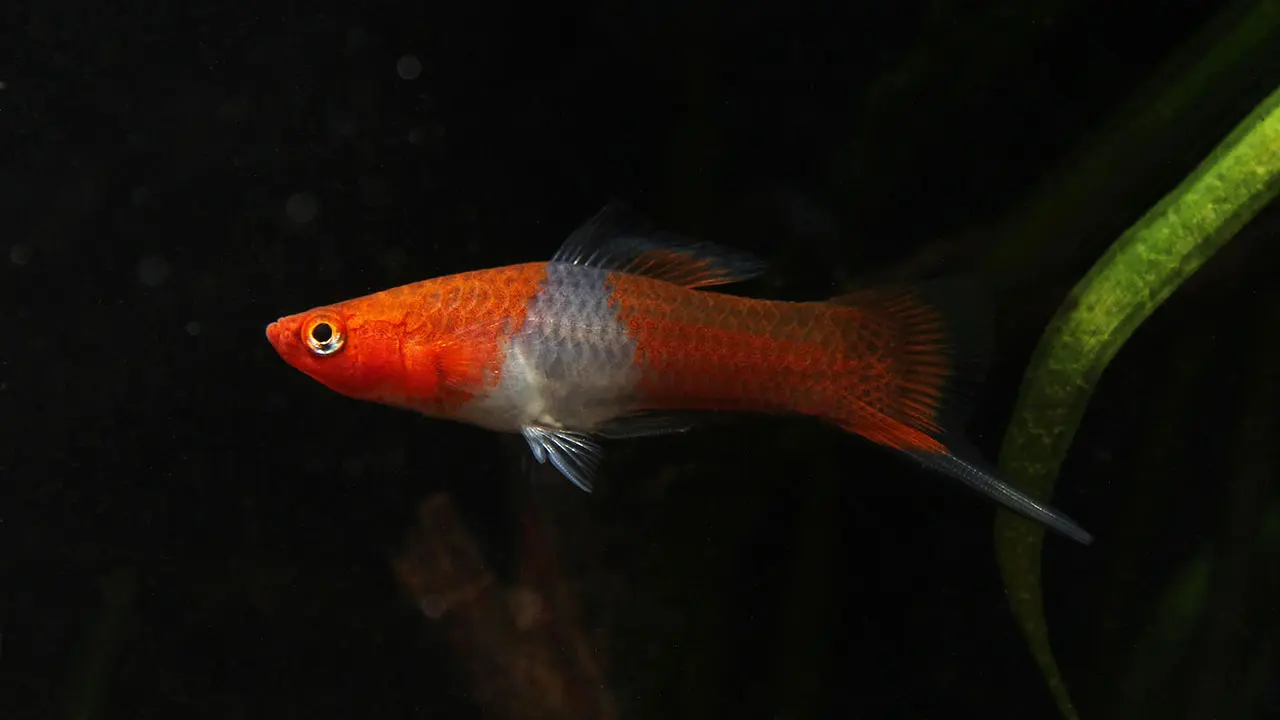
Is Swordtail Fish Aggressive?
Swordtails are social fish, but they don’t exhibit schooling behavior. Schooling fish tend to swim in tightly coordinated formations, while swordtails prefer to live in loose groups. These groups may interact with each other, but their movements are more independent than those of a true schooling fish.
Swordtail aggression can flare up depending on the gender makeup of your tank. To minimize competition among males, keeping a ratio of 3 females to 1 male is recommended. While they aren’t known for fin-nipping as severely as some other fish, they may nip at the fins of stressed tank mates.
Types of Swordtail fish
Here’s a table outlining some popular varieties of swordtail fish, their sizes, and brief descriptions:
| Variety | Size (inches) | Description | Pics |
| Green Swordtail | Males up to 5.5
Females up to 6.3 |
The most common variety with an elongated body and a green or olive base color. Females are slightly larger than males. | 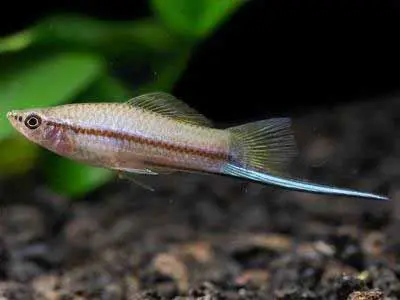 |
| Neon Swordtail | Maximum 5.5 | Brightly colored with neon markings on the body and fins. Females are slightly larger than males. | 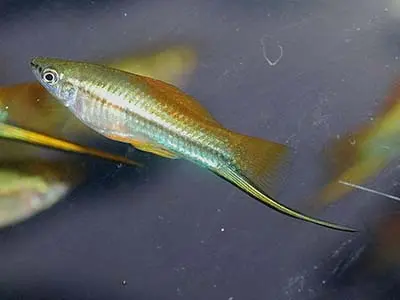 |
| Pineapple Swordtail | Males up to 5.5
Females up to 6.3 |
Yellow or orange body with a red or black caudal fin (tail). Females are slightly larger than males. | 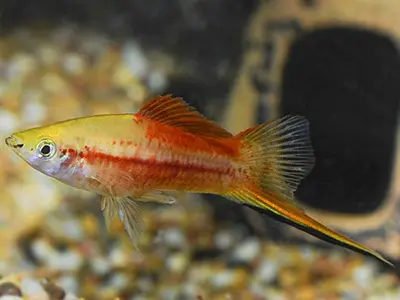 |
| Painted Swordtail | Males up to 5.5
Females up to 6.3 |
Variegated body with blotches of color like red, black, and orange. Females are slightly larger than males. | 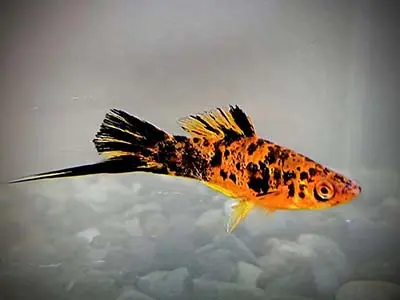 |
| Marigold Wag | Maximum 3-5 | Orange or yellow body with a black caudal fin and a black spot near the dorsal fin. Females are slightly larger than males. | 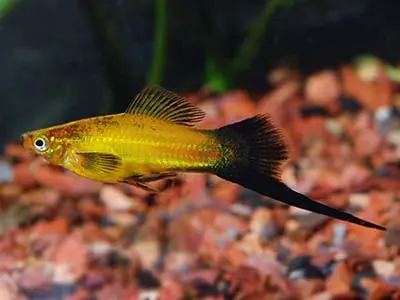 |
| Red Wag Lyretail | Maximum 5.5 | Red body with a black caudal fin and a forked (lyretail) tail. Females are slightly larger than males. | 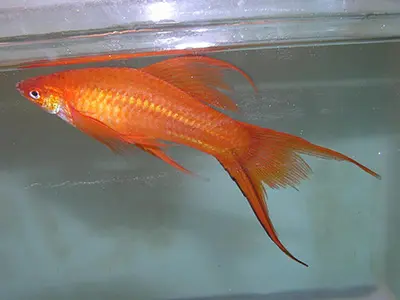 |
| Hi-Fin Lyretail | The average adult size is 2.5–3, they may reach 4 | Larger fins than other varieties, with a forked (lyretail) tail. Females are slightly larger than males. | 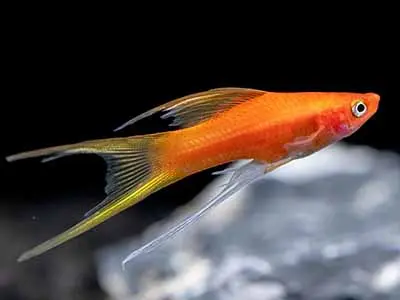 |
| Berlin Swordtail | Maximum 4 | Black or red body with a contrasting-colored caudal fin. Females are slightly larger than males. | 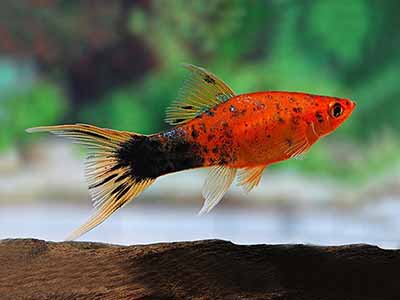 |
| Tuxedo Swordtail | Fully grown is up to 5.5 | Black markings on the front half of the body resemble a tuxedo. Females are slightly larger than males. | 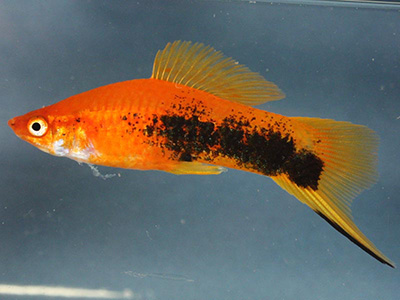 |
| White Swordtail | Between 2.5 and 3 | Albino variety with a white or cream body and pink eyes. Females are slightly larger than males. | 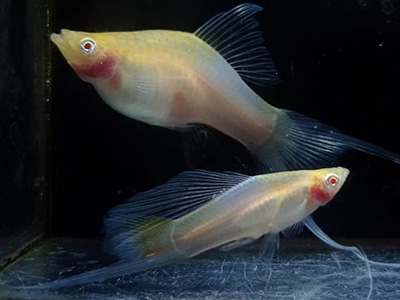 |
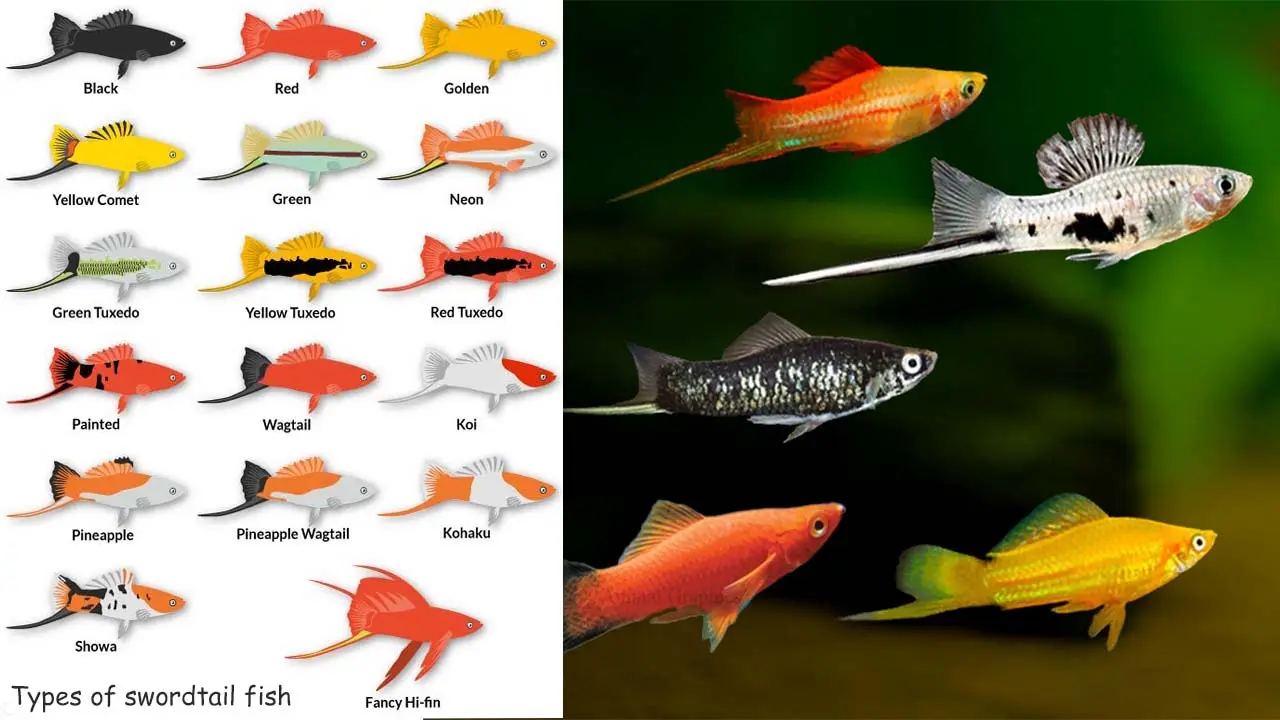
How Many Swordtail Fish in a Tank
The number of swordtail fish you can keep in a tank depends on the tank size and other factors like:
- Swordtail fish size: Females can grow larger than males, up to 6 inches long.
- Water filtration: A good water filter is essential for maintaining water quality as the number of fish increases.
- Tank decorations: Live plants and hiding spots can help reduce stress and territorial behavior.
Here’s a guideline for stocking a tank with swordtail fish:
- Minimum recommended gallons per fish: 2 gallons
- 10-gallon tank: 5 swordtail fish (minimum). This is on the lower end, as swordtails are social fish and prefer some company.
- 20-gallon tank: 10 swordtail fish (minimum). This allows for a bit more space per fish.
- 30-gallon tank: 15 swordtail fish (minimum). With this tank size, you can start to introduce a few more tank mates along with the swordtails.
- 55-gallon tank: 27 swordtail fish (minimum). This larger tank allows for more swordtails and a wider variety of tank mates.
Additional stocking tips:
- The ratio of females to males: It’s recommended to keep a ratio of 3 females to 1 male to minimize aggression among males.
- Other fish species: If you plan to house other fish with your swordtails, factor in their size and compatibility needs when determining the total number of fish for your tank.
How Many Babies Do Swordtail Fish Have
Swordtail fish are well known for their prodigious breeding ability, producing as many as 50 fry per spawning! This is why we must separate males and females if we do not want to end up with an enormous number of baby fish.
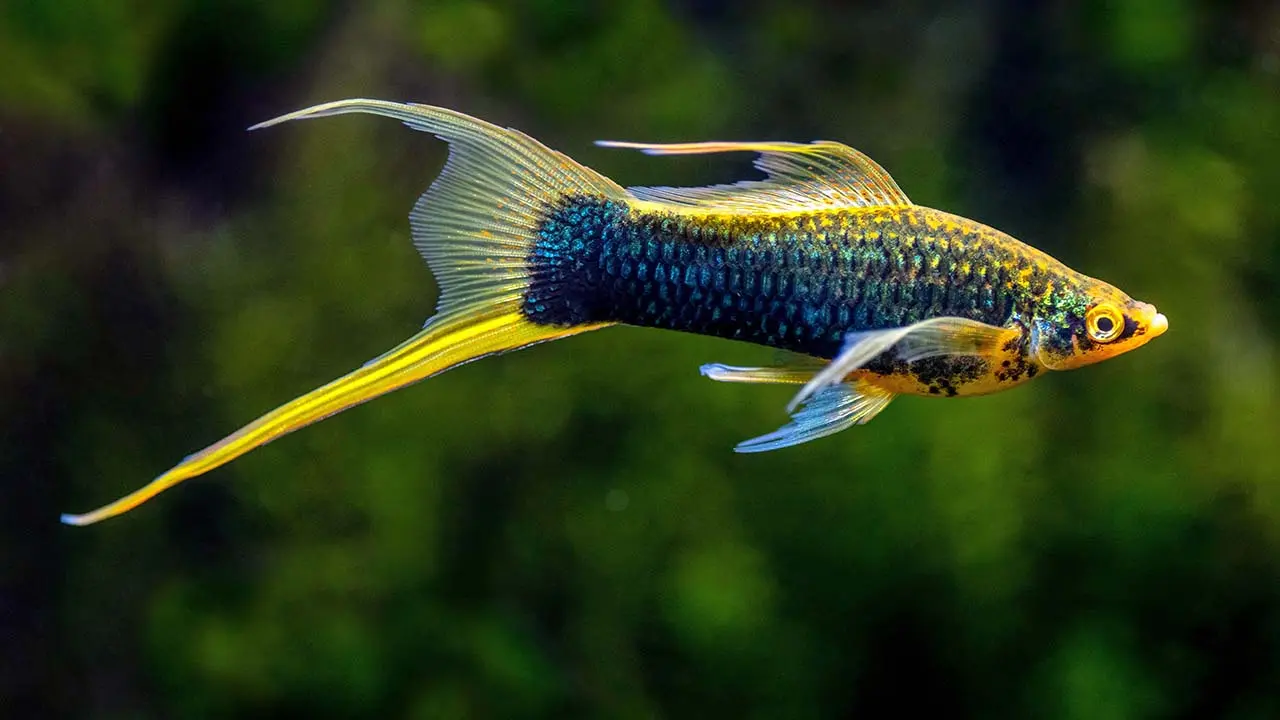
Can Swordtail Fish Live with Goldfish
Swordtail fish and goldfish are not ideal tank mates for several reasons. The preferred water temperatures of the swordtail fish are different from those of goldfish. The swordtail is comfortable in tropical-like temperatures (72-78°F.) compared to the cooler water of goldfish (60-72°F). This cohabitation together would require some kind of heat tolerance that may not be suitable for either’s well-being.
Furthermore, goldfish are large-sized fish of large size, reaching 10 inches in length, and a minimum of 55 gallons of water per fish should be ensured, while swordtails are smaller, 4-6 inches fish but with a requirement of at least 2 gallons of water per fish.
This, in turn, requires a very big tank for it to fit in. However, goldfish are the messiest fish and produce a lot of waste, and swordtails are more sensitive to water quality concerns.
The Final Word
At the end of the article, the swordtail fish is a lively and colorful freshwater fish that could be a perfect choice for your community tank. They belong to a cichlid family and are not schooling, but keeping a ratio of 3 females to 1 male helps in quelling aggression.
A 55-gallon tank has enough room for about 27 swordtails with other peaceful tank mates. Just keep in mind that swordtails are prolific spawners; therefore, separate the males from the females if you don’t intend to have many fries.
At last, we can say Swordtails and goldfish are not on good terms as they have different temperature preferences, size requirements, and waste production.
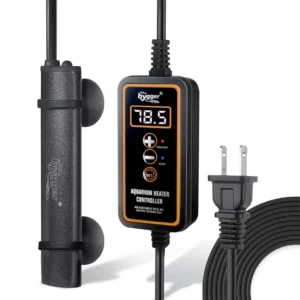
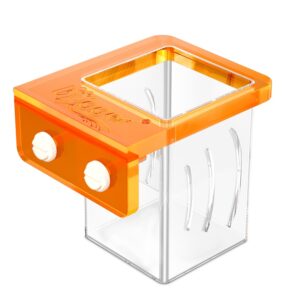
Leave a comment